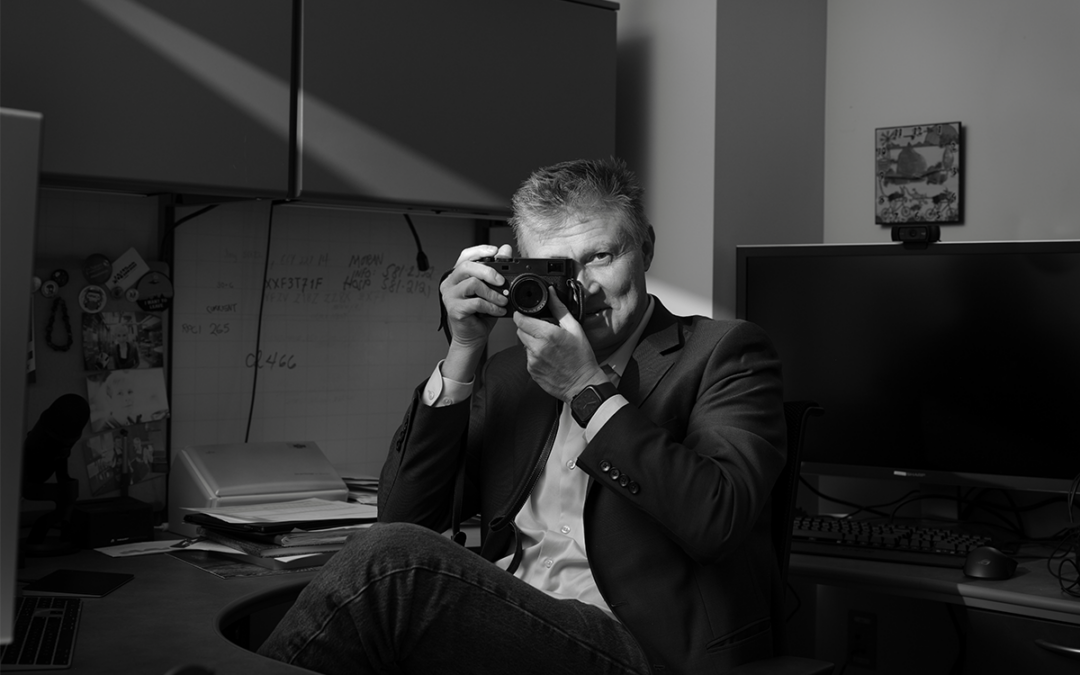n 1989, long before he became a neuroscientist, Bryan W. Jones stopped by a thrift shop in Brooklyn and, on a whim, bought a used Leica M6 camera. The purchase changed his life.
In the next couple of years, dyslexia would derail his adolescent dream of becoming a pilot in the U.S. Marine Corps—something he says he wanted to pursue after seeing an AV-8B Harrier jet’s short takeoffs and near-vertical landings. But armed with his Leica, he developed a keen sense of photography, and he later parlayed his youthful interest in military technology into a part-time job as a photojournalist, documenting the voyages of nuclear submarines and drone operations.
At the time, he was also working as a postdoctoral researcher in neuroscience—a field he fell in love with after considering medical school and working in a sleep lab. When he and his wife began thinking about having a family, traveling to war zones for work started to seem less appealing, he says. He turned to science full time.
